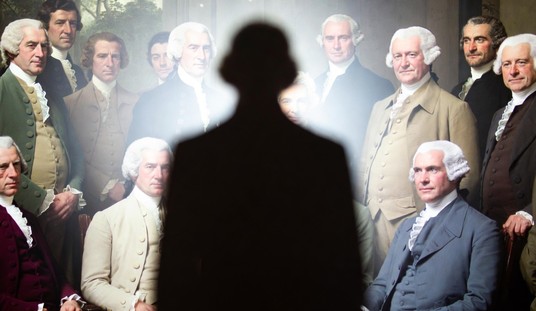It's Christmas morning, and chances are you have a lot going on. The kids are opening presents, and there's wrapping paper strewn throughout the house. You might have food on the stove or in the oven ready for family to come by later. Or you may have family already at your house.
We often have the best of intentions, but we don't always pause to think about the significance of Christmas. It's easy to get caught up in the secularization and culturalization (yeah, I just made up a word) of the holiday and lose sight of what it's all about, so I'm not throwing stones. But a recent column by Shane Rosenthal at The Humble Skeptic made me think about one particular aspect of the significance of Jesus' birth.
For those who aren't familiar with Rosenthal, he grew up Jewish and became an atheist early on, but he eventually "ended up losing faith in atheism" and became a Christian. Now he writes and produces podcasts that help believers defend their Christian faith.
In this particular column, Rosenthal writes about how the birth of Jesus fulfilled Old Testament promises, and he hones in on one particular prophecy from the book of Micah. In Micah 5:2, the prophet declared, "But you, O Bethlehem Ephrathah, who are too little to be among the clans of Judah, from you shall come forth for me one who is to be ruler in Israel, whose coming forth is from of old, from ancient days."
"This passage helped me to realize for the first time that there was quite a strong connection between Judaism and Christianity," Rosenthal writes. "Jesus wasn’t attempting to start a new religion, he was simply claiming to be the divine Messiah promised throughout the pages of the Hebrew Bible."
Related: Sunday Thoughts: Remember Why We Celebrate
Just two verses later, Micah made another powerful claim about the coming Messiah: "And he shall stand and shepherd his flock in the strength of the LORD, in the majesty of the name of the LORD his God. And they shall dwell secure, for now he shall be great to the ends of the earth" (Micah 5:4, ESV).
"The Christians of the first century only saw the very first hints that this was being fulfilled by Jesus as many Gentiles began to worship him in the middle part of the first century, but now some two thousand years later, the fact that these promises pointed to Jesus is more clear than ever," Rosenthal elaborates. "Jesus is arguably the most famous person who ever lived across all times and places, and Christianity is the number one religion around the world."
As I was reading Rosenthal's column, another thought struck me: the prophecy is similar to the last promise Jesus made to His disciples before ascending into heaven: "But you will receive power when the Holy Spirit has come upon you, and you will be my witnesses in Jerusalem and in all Judea and Samaria, and to the end of the earth” (Acts 1:8, ESV).
We are the beneficiaries of Micah's prophecy and Jesus' instruction. As Rosenthal points out, we here in the U.S. basically live at the "ends of the earth" for the prophets and apostles, but here we are, reading and appreciating just one of the many prophecies that Jesus fulfilled. It's exciting and encouraging to know that Jesus was the fulfillment of promises that came hundreds and thousands of years before His arrival on earth.
"As you celebrate Christmas this year, I encourage you to take some time to reflect on the words of Micah’s amazing prophecy," Rosenthal writes. "Some 700 years in advance, he revealed that Israel’s Messiah would be born in Bethlehem, and additionally that 'his name would be great to the ends of the earth.' That part of the promise would certainly take time to be accomplished and couldn’t happen overnight. But if his name is greatly revered in your household, then Micah was not only talking about Jesus, but he was also thinking of you and your family as well."
Take courage from that truth this Christmas Day — and use it as occasion to worship the One whose promises include us!










Join the conversation as a VIP Member